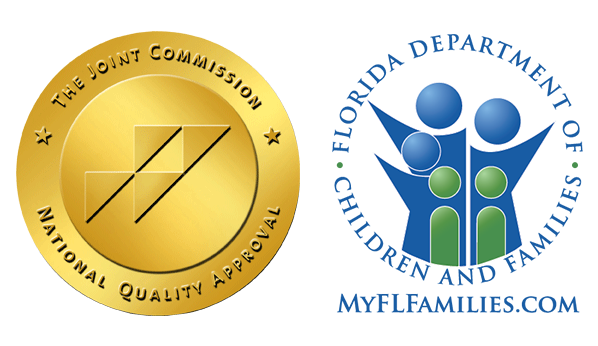Withdrawing from benzodiazepines or benzos can be an intense experience. However, with the help and guidance of medical professionals, appropriate support helps many people overcome their addiction safely.
Although medical detox programs are challenging, they enable many to live healthy and substance-free lives.
What Are Benzodiazepines?
Recognized as a class C drug, benzodiazepines produce a relaxing effect when consumed due to the way they interact with Gamma-aminobutyric acid (GABA) receptors within the brain.
A natural chemical produced by the body, GABA is responsible for our memory, emotions, reasoning, and breathing. When administered, benzodiazepines enhance GABA receptors and provide temporary relief from negative emotions, such as anxiety.
Some common benzodiazepines include:
- Valium (diazepam)
- Xanax (alprazolam)
- Ativan (lorazepam)
- Klonopin (clonazepam)
Otherwise known as a type of sedative drug, benzodiazepines reduce body and brain function. For this reason, medical professionals often prescribe them as a suitable form of treatment for the following problems:
- Anxiety
- Panic Disorder
- Sleep Disorders
- Seizures
- Alcohol withdrawal
However, benzodiazepines are not suitable for long-term use. Using benzodiazepines for more than two weeks puts clients at risk of experiencing several adverse side effects.
Why Is It Hard to Quit?
As noted above, benzodiazepines are highly addictive drugs. Dependency can arise very quickly, even if they are prescribed by a doctor. Over time tolerance to the drug develops, leaving many requiring higher doses to achieve the desired effect.
Frequently administering benzodiazepines sees users become accustomed to the effects it produces. When an individual stops taking benzodiazepines, the body goes into overdrive to make up for the reduction of GABA activity. Here, unpleasant withdrawal symptoms emerge.
Withdrawing from benzodiazepines can be dangerous and fatal, which is why it is of utmost importance to complete a detox program under the supervision of a medical professional.
What Withdrawal Symptoms Can I expect?
Withdrawal symptoms experienced are dependent on factors such as the length of benzodiazepines use, dosage, underlying mental health conditions, genetics, and an individual’s body type.
Irrespective of the symptoms encountered, they typically arise within twenty-four hours and can last from a few days to several months.
Unbeknown to many, the different types of benzodiazepines take a unique amount of time to leave the bloodstream. With this in mind, withdrawal symptoms will appear faster when shorter-acting drugs, such as Xanax are consumed. In contrast, withdrawal symptoms will take longer to emerge when longer-acting benzodiazepines, such as Valium, are administered.
As withdrawing from benzodiazepines or going cold turkey can be very dangerous, medical professionals recommend tapering doses. Tapering doses ensures that detox is safe and comfortable.
Should you decide to go cold turkey, you may be at risk of experiencing symptoms such as:
- Grand mal seizures
- Hallucinations
- Delirium
- Psychosis
- Suicidal thoughts
Even though tapering is recommended, encountering the following withdrawal symptoms is expected:
- Anxiety
- Tension
- Panic Attacks
- Trembling
- Concentration Issues
- Headaches
- Depression
- Dizziness
- Nausea
- Sweating
- Hypersensitivity
- Physical aches and pains
As the withdrawal symptoms associated with detox can impact an individual’s everyday life, employing coping strategies such as meditation, or exercise is helpful. Psychological and well-being therapy is also beneficial when completing a medical detox.
Rebound Effects
As benzodiazepines are often used to treat anxiety and insomnia, feelings associated with mental health problems may return during detox. This is otherwise known as a rebound effect.
When rebound effects are experienced, it is essential to remember that some of the feelings you may be experiencing are actually previously encountered symptoms.
What Treatment Options Are Available?
Inpatient Treatment
Inpatient treatment is highly beneficial for anyone struggling with benzodiazepine addiction. In addition to providing twenty-four-hour care, inpatient treatment offers immediate access to medical advice and assistance when required.
By providing an environment where relapse is less likely to occur, this immersive treatment environment assists many in safely completing a detox program.
Outpatient Treatment
An additional option for those with mild addictions, outpatient treatment is recommended for those not at risk of developing severe withdrawal symptoms.
Unlike inpatient treatment, this option enables those undergoing detox to continue their day-to-day life while receiving the care and support required.
Find Recovery Now
Although a life without benzos can seem scary, it’s always possible to find recovery. Reaching out for help is the first step – you’ll be amazed at how much easier medical support makes beginning your journey.












